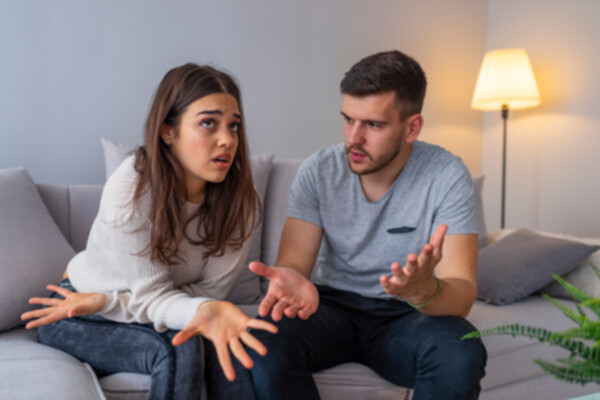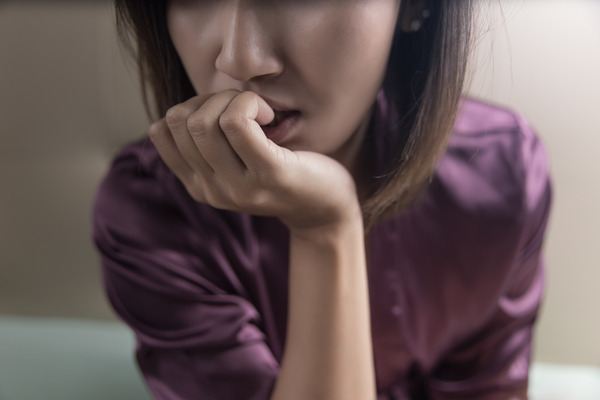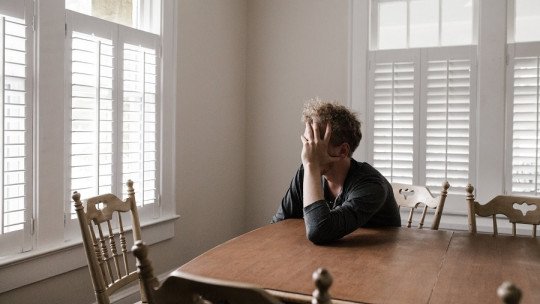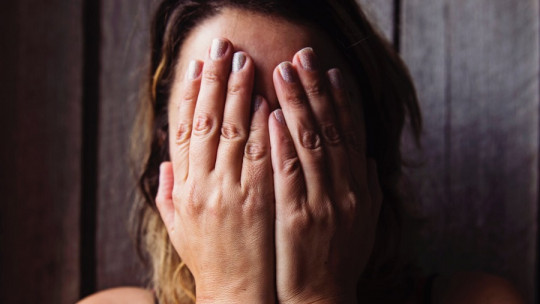We are too used to living with guilt as something inevitable. What if I told you that it can be overcome? Read the following article to learn how not to blame yourself and move forward.
He guilty feeling It can make you an implacable judge, a thought that punishes you every hour of the day. We always have him in mind, we carry him with us wherever we go and he is always willing to remind us how badly we have done it and the damage caused (even if it is not real).
What is guilt?
The blame part of the loss of hope for recognition and fear of the withdrawal of love due to disappointment. It implies a punishing feeling towards oneself for the fault that has been committed or for feeling imperfection in one’s entire being due to identification with the fault. The culprit is someone who has lost hope of being loved due to lack or feeling incomplete and lacks assertive aggressiveness to get out of guilty victimhood.
Guilt comes from a feeling of imperfection toward oneself for what one does or is. He guilty He does not see that he can repair his imperfections; He has a narcissistic deficit and a high concept of what he should be and does not become or do. The most guilty people have received a very rigid education regarding how things should be and would even need to be able to fight against the normative rigidity or those who impose it.
Despite all the negative that a guilty feeling , we can reverse this situation by trying to see opportunities through it. In this way, guilt can be used to change our bad habits, strengthen our character, learn lessons, or build our relationships better.
Signs of a feeling of guilt
have to blame always present in our minds causes the person to end up developing a series of attitudes that are harmful to their mental health. In this way, psychologists identify the following characteristics of someone who usually feels guilty in their life.
He considers himself a bad person
someone who is guilty to do something bad Perceives himself/herself as a bad person. In this way, it is possible that by making a mistake he begins to feel guilty without being guilty of other actions that are not under his responsibility.
Continuous complaints
Most people who usually have a guilt In their mind they have the tendency to continually complain. This causes the negativity of this feeling to be extrapolated to all areas of your life.
Isolation
When a person feels guilty For different reasons, he begins to isolate himself from all the people he cares about. The reason for this is that his poor view of himself can lower his self-esteem and security.

Doesn’t leave his comfort zone
Due to bad feelings related to the blame people who have this feeling of guilt usually try not to take risks or leave their comfort zone since that means facing these emotions.
Now analyze if you or someone close to you has several of these characteristics. Think about whether you want to continue like this or are you considering changing the way you see yourself/judge yourself/harm yourself. It is possible to live another type of life if you want to change this type of life. feelings of guilt towards yourself. You just need to stop and analyze the trajectory of your life with pen and paper.
How to stop feeling guilty?
There are a series of actions you can do to leave the blame behind According to psychologists, we can follow the following advice.
1. Analyze your guilt
For stop feeling guilty , the important thing is to analyze where this fault comes from. Therefore, the first step is to try to recognize the fault to begin to address it with more rational thinking. Acknowledging your mistakes is what will allow you to leave behind everything that is related to guilt and its negative feelings.
2. Apologize
If you think you owe someone an apology, face your fears or ego and ask for forgiveness. A good apology in time can repair the damage and make you leave your guilty feeling It is important that this apology is sincere so that this has positive effects on you and others.
3. Commit to change
When you make an apology to someone or yourself it is a way of committing to make a change Don’t hold on to blame, everyone makes mistakes. Therefore, you should try to turn the page and see what you can change or improve.
4. Learn from the past
To achieve success in our lives we must learn from our failures. In this way, try to remember what you were wrong about. A good way to do this is by analyzing the situation that generated the fault as well as try to write down what you could improve and see how you can do it next time.
5. Practice gratitude
To remedy the negative feelings involved the blame , it is good to try to visualize what we can thank ourselves and others for. So much so that it will be crucial to try to practice gratitude in what we really feel grateful to have: be it relationships, virtues, among others.

6. Leave negative thoughts behind
The negativity that bring the blame It won’t do you any good. To compensate for the feeling of guilt, you must try to rationalize your negative thoughts, that is, confront the internal dialogue we have in our minds. In this sense, it is essential to try to talk to them and ask yourself if it really makes sense to think about it.
7. Forgive yourself
Forgiveness towards yourself is essential. When someone forgives himself/herself, he/she recognizes that he/she has really made a mistake and that he/she allows himself/herself to have made it. Thanks to this recognition and forgiveness, you will be able leave the blame behind without this error defining you.
Exercise to start leaving guilt behind
- A) Write down everything you remember from before you feel guilty: what you were like, what things made you laugh, who you liked to be with, what you did in your free time, etc. Dedicate at least 4 pages to your analysis
- B) Now write, in detail, what is so bad that you have done that makes you remember it every day and that you can’t forgive yourself. Write the fact itself, without justifications, then you will understand what led you to do something like that.
- C) Well, now you are going to think about the lessons you have learned from it : what you wouldn’t do now, how you behave now if you go through a similar situation, if you have learned to be more tolerant, understanding, compassionate, etc.
- D) Finally, analyze why (not because) You’ve done it and if you think you have hurt someone, take your time to recognize it, put yourself in the other’s place and feel their pain, then ask for forgiveness and promise yourself that it will not happen again…and forget.
Do a deep reflection on your self-concept, allow yourself to forgive yourself for what you have done, whatever it is it cannot be so bad that it ruins your life. There is no need to blame yourself, you have the right to make mistakes and learn from them. Furthermore, making mistakes is the only way to learn and improve definitively. If you think you can’t handle this guilty feeling it is important to consult with a professional psychologist.
Remember: no one learns in someone else’s head, we must learn from mistakes for ourselves and if we punish ourselves with the blame we maintain the damage and there is no learning, so we are exposed to making the same mistake again.









